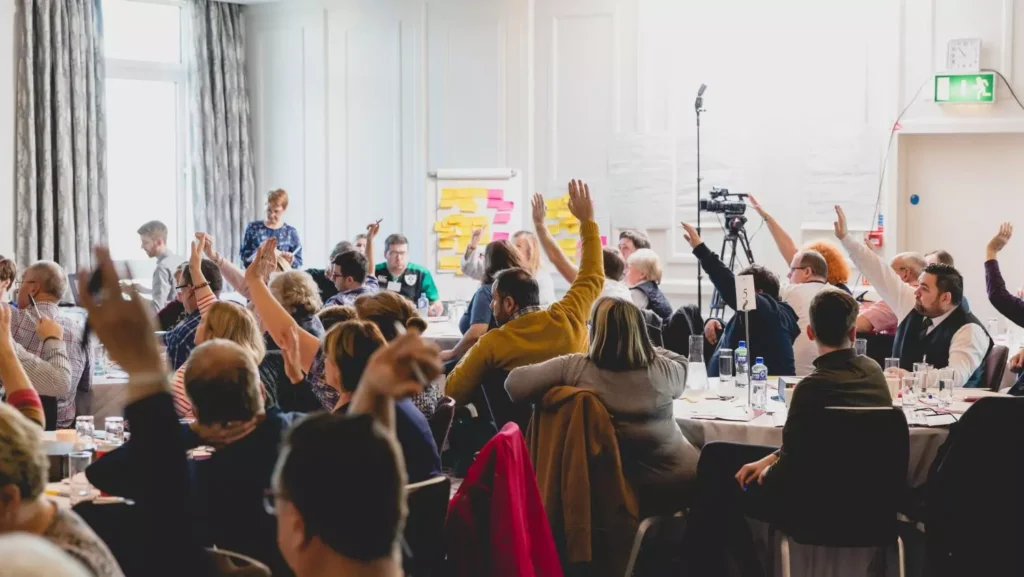Across the globe, traditional democracy is under strain. Trust in political institutions is faltering, and governments seem increasingly ill-equipped to address society’s most pressing challenges. In Australia, where political polarisation is growing and issues like climate change, housing inequality, and Indigenous rights remain unresolved, the need for a new approach to governance is clear. Citizens’ assemblies could provide the answer.
A citizens’ assembly is a panel of everyday people, randomly selected to reflect the diversity of the population, brought together to deliberate on complex or contentious issues. Guided by expert advice and facilitated discussions, these assemblies aim to reach informed recommendations that reflect the collective will of the people. Unlike the adversarial nature of party politics, this process fosters cooperation, inclusion, and thoughtful debate.
The transformative potential of citizens’ assemblies has already been demonstrated around the world. Ireland offers a particularly striking example. In 2016, the Irish Citizens’ Assembly tackled one of the country’s most polarising issues: abortion laws. For decades, Ireland’s constitutional ban on abortion had been a point of deep contention. The assembly, comprising 99 citizens, was tasked with exploring the topic, hearing from experts and advocates, and debating the moral and legal implications. Their recommendation to legalise abortion led to a historic referendum in 2018, with two-thirds of the population voting for change. The assembly did more than influence policy—it catalysed a national conversation, proving that ordinary citizens can find solutions to even the most divisive issues.
France provides another compelling case. In 2019, the French government convened a Citizens’ Convention on Climate, bringing together 150 people to develop proposals to combat climate change. Over nine months, the group proposed bold measures, including banning short domestic flights and introducing stricter environmental regulations on businesses. While not all recommendations were implemented, many shaped France’s climate policy, demonstrating the potential for citizens to drive meaningful change on urgent global issues.
Even Canada has embraced this model, using citizens’ assemblies in British Columbia and Ontario to explore electoral reform. In British Columbia, the assembly’s proposal for proportional representation, though narrowly rejected in a public referendum, highlighted how citizens can engage with and deliberate on complex topics often ignored or oversimplified in traditional political debates.
Australia could draw valuable lessons from these international successes. As the nation faces its own challenges, from escalating housing costs to Indigenous reconciliation and climate inaction, citizens’ assemblies offer a way to break through political stalemates. By giving a voice to diverse groups of Australians, these assemblies could produce solutions that reflect the collective wisdom of the nation rather than the priorities of party politics.
Critically, citizens’ assemblies also address a broader crisis in Australian democracy: the erosion of public trust. Many Australians feel disconnected from the political process, believing their voices go unheard in a system that often prioritises short-term interests over long-term solutions. By directly involving citizens in decision-making, assemblies restore a sense of ownership and agency, proving that democracy can work for everyone, not just the politically powerful.
The time has come for Australia to embrace this innovative approach. Imagine a citizens’ assembly shaping national climate policy, crafting sustainable solutions that balance economic realities with environmental urgency. Picture a diverse group of Australians debating how to improve housing affordability or advising on the path to Indigenous recognition and reconciliation. These are not abstract ideals but tangible possibilities.
Citizens’ assemblies remind us that democracy is not merely a system of government—it is a process that thrives on participation, inclusion, and trust. In a country that prides itself on giving everyone a fair go, what could be more fitting than inviting everyday Australians to take the lead in shaping their nation’s future? If Australia truly wants to confront its greatest challenges, it must turn to its greatest resource: its people. Citizens’ assemblies are the way forward.


